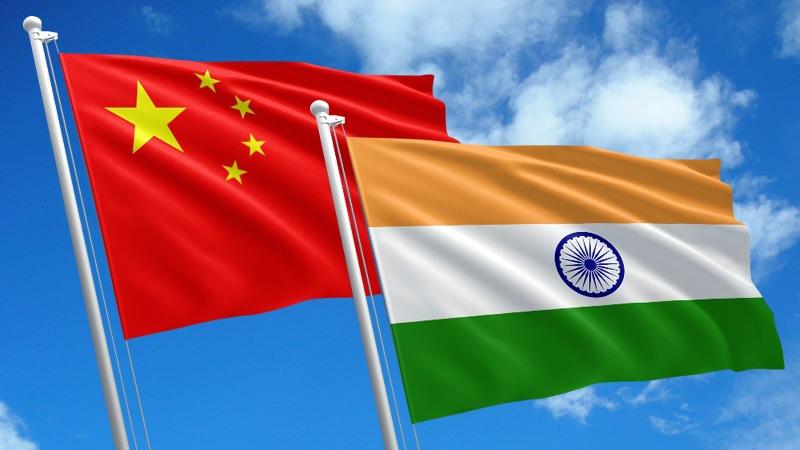 NEW DELHI – At the 14th BRICS Summit, both China and India made sincere efforts to strengthen bilateral relations, experts said.
NEW DELHI – At the 14th BRICS Summit, both China and India made sincere efforts to strengthen bilateral relations, experts said.
Top diplomats and security officials of China and India as well as other BRICS member nations have held detailed discussions on many issues of common concern before and during the recently concluded summit in China.
The BRICS comprises the major emerging economies of Brazil, Russia, India, China and South Africa.
ALSO READ: More trust urged for Sino-Indian relations
The virtual and in-person meetings reached a consensus on issues such as strengthening multilateralism and global governance along with responses to new threats and challenges to national security.
I am confident that our deliberations today will produce suggestions to further strengthen our ties.
Narendra Modi, Prime Minister, India
Mutual cooperation among BRICS members can make an useful contribution to the post-COVID global recovery process, Indian Prime Minister Narendra Modi said during a virtual address at the summit on June 23.
“I am confident that our deliberations today will produce suggestions to further strengthen our ties," Modi said. He added at the summit on June 24 that BRICS has undergone several structural changes in the last few years which has increased its effectiveness and influence.
India's digital sector valuations will cross $1 trillion by 2025, with the country expecting 7.5 percent growth this year, which will make it the fastest growing major economy, Modi said while addressing the BRICS Business Forum on June 22.
The summit, held from June 22-24, was held in a virtual format for the third consecutive time. BRICS nations have a combined population of 3.23 billion and their combined GDP is more than $23 trillion.
Modi noted that BRICS can work as a team to increase connectivity among the youth, sports persons, civil society organizations and think tanks.
When trade can take place despite the border tension between China and India, then people-to-people exchanges, youth summits, sports and cultural activities, and closer economic cooperation too can strengthen Sino-Indian relations, said Manoj Kewalramani, chairperson of the Indo-Pacific Research Programme at the Takshashila Institution.
READ MORE: Wang's India visit carries significance for bilateral ties, global affairs
The BRICS summit has yielded fruitful results in terms of economic and trade progress, with a series of agreements reached on the digital economy, sustainable development, industrial chain stability and support for multilateralism, Wang Shouwen, China’s vice minister of commerce, said in a statement on the ministry’s website.
Trade between India and China reached an all-time high of more than $125 billion in 2021, according to data from China's General Administration of Customs.
China’s State Councilor and Foreign Minister Wang Yi on June 22 held talks with India’s Ambassador to China Pradeep Kumar Rawat on the sidelines of the summit, with both sides exchanging views on the boundary issue as well as broader bilateral ties.
It was a positive gesture that Wang Yi conveyed his desire to move ahead with bilateral relations, while Rawat made it clear there should be an early progress on restoration of peace and tranquility in border areas, said Ashok Kantha, the former Indian Ambassador to China.
BRICS and the Shanghai Cooperation Organisation are useful formats where India and China remain engaged to bring the bilateral relations back on track, Kantha said.
For the Indian side it is difficult to set aside the border issue, as the country has consistently maintained that peace and tranquility in border areas is an essential pre-requisite for developing the relationship, the former Indian envoy said.
However, Wang Yi said that “common interests between China and India far outweigh the differences” and the two sides should work together to cope with various global challenges, and safeguard the common interests of both nations and the developing countries, according to a statement by China’s foreign ministry.
He said that the two neighbors should put the border issue in an appropriate place within bilateral ties and seek solutions through dialogue and consultation.
The meeting, though on the sidelines of the BRICS summit, carries special significance as it was held amid growing border tensions between India and China. To date, China and India have held 15 rounds of corps commander-level talks to find a solution to the border issue.
Wang Yi said the two sides should strengthen cooperation rather than guard against each other, and enhance mutual trust and not be suspicious of each other, according to the official statement.
On June 15, India’s national security advisor Ajit Doval attended a virtual BRICS meeting hosted by Yang Jiechi, China’s director of the Office of the Central Commission for Foreign Affairs. The meeting was aimed at strengthening “political and security cooperation” within the five-nation grouping.
“The fact is that there is obviously an outreach from China consistently on the side-lines of the meeting or before the summit which is a positive thing. The dialogue process is at least (at an) advance stage (and shows) some degree of mutual understanding,” said Professor Alka Acharya, Centre for East Asian Studies, School of International Studies at Jawaharlal Nehru University in New Delhi.
The writer is a freelance journalist for China Daily.


